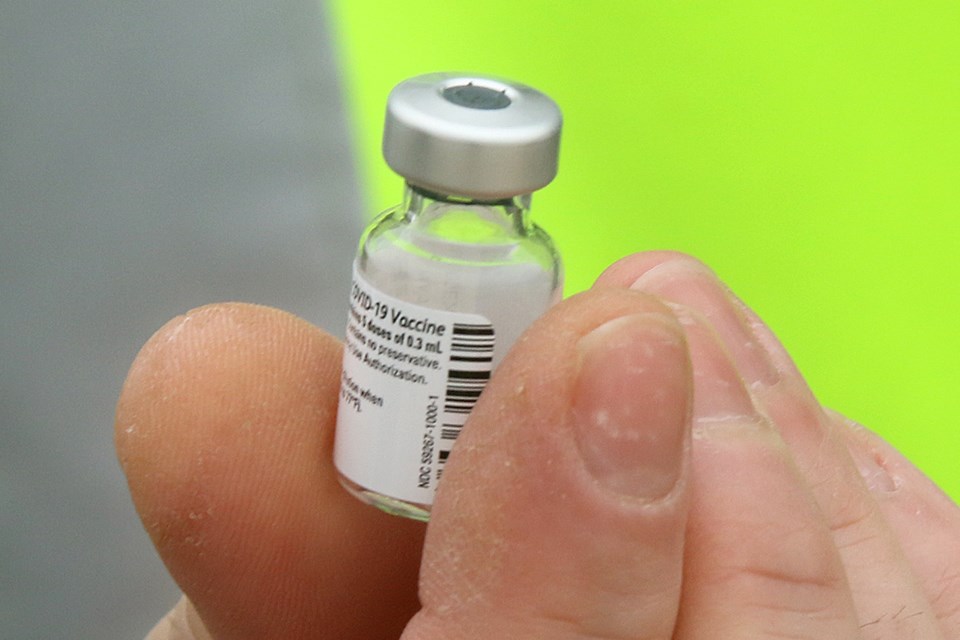THUNDER BAY – The Thunder Bay District Health Unit says 22.6 per cent of people living in the region 16 and older have received at least one dose of the COVID-19 vaccine.
According to a release issued on Thursday, the health unit says 34,997 vaccines have been administered locally, including those given by partner agencies, through Wednesday.
A total of 31,033 people have received at least one dose. The district has a total population of 149,936.
The health unit also said 78.9 per cent of those aged 80 and older have received at least one dose of vaccine.
Currently the health unit is focusing on those 75 and older at their vaccination clinic at the CLE, and planning is under way to launch Phase 2, which would include adults aged 60 to 79, starting with those 75 to 79. Individuals with certain health conditions will also qualify, as will residents, essential caregivers and staff at high-risk congregate settings and essential workers who cannot work from home.
Three Thunder Bay pharmacies on Saturday will be allowed to begin administering the AstraZeneca vaccine to anyone 55 and older.
Essential workers who cannot work from home include:
- Elementary and secondary school staff
- Police, fire, compliance, funeral, special constables and other workers responding to critical events
- Childcare and licenced foster care workers
- Food manufacturing workers
- Agriculture and farm workers
- High-risk and critical retail workers in grocery stores and pharmacies
- Remaining manufacturing labourers
- Social workers, including youth justice
- Courts and justice system workers, including probation and parole
- Lower-risk retail workers (wholesalers, general goods)
- Transportation, warehousing and distribution
- Energy, telecom (data and voice), water and wastewater management
- Financial services
- Waste management
- Mining, oil and gas workers
High-risk chronic conditions include:
Highest risk
- Organ transplant recipients
- Hematopoietic stem cell transplant recipients
- People with neurological diseases in which respiratory function may be compromised (for example, motor neuron disease, myasthenia gravis, multiple sclerosis)
- Haematological malignancy diagnosed within the last year
- Kidney disease with estimated glomerular filtration rate (eGFR) under 30
High risk
- Obesity (BMI over 40)
- Other treatments causing immunosuppression (for example, chemotherapy, immunity-weakening medications)
- Intellectual or developmental disabilities (for example, Down Syndrome)
At risk
- Immune deficiencies and autoimmune disorders
- Stroke and cerebrovascular disease
- Dementia
- Diabetes
- Liver disease
- All other cancers
- Respiratory diseases
- Spleen problems
- Heart disease
- Hypertension with end organ damage
- Diagnosed mental disorder
- Substance use disorders
- Sickle cell disease
- Thalassemia
- Pregnancy
- Immunocompromising health conditions
- Other disabilities requiring direct support care in the community
